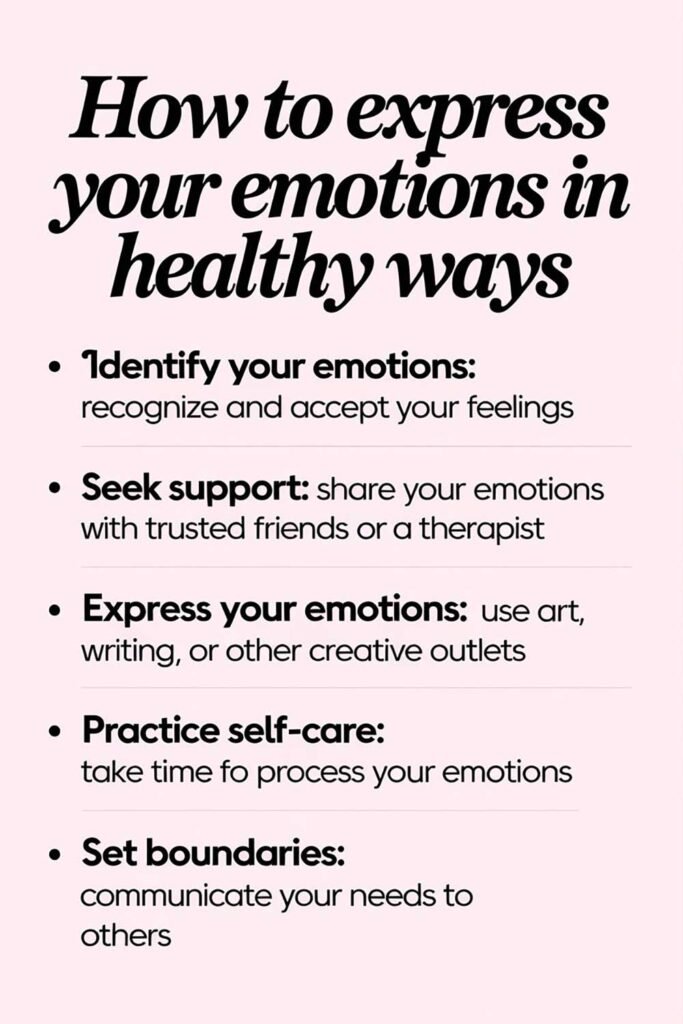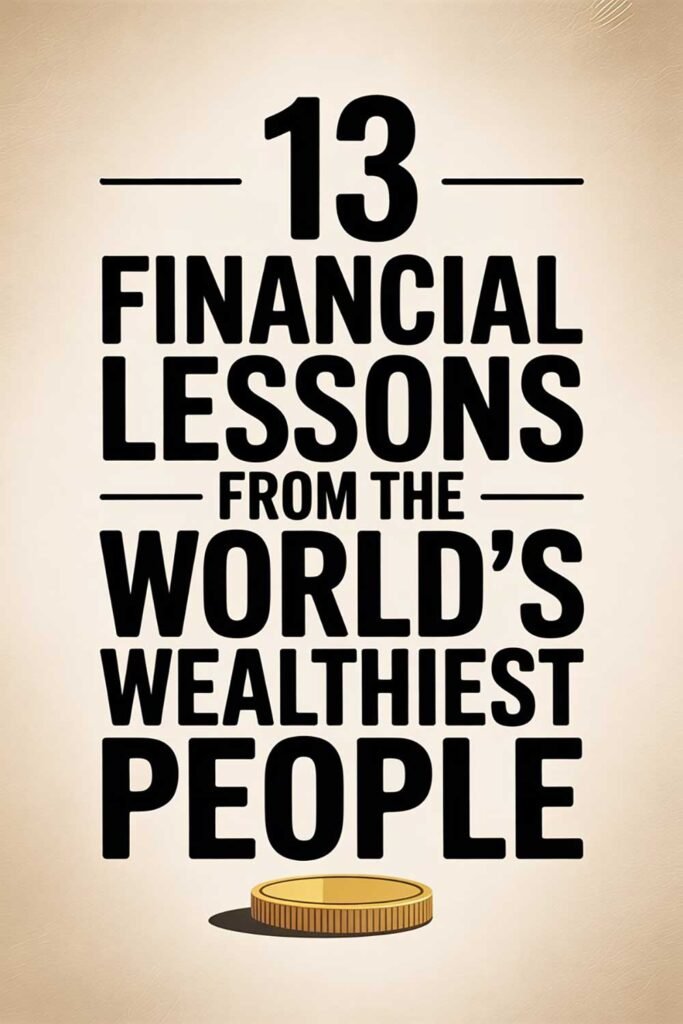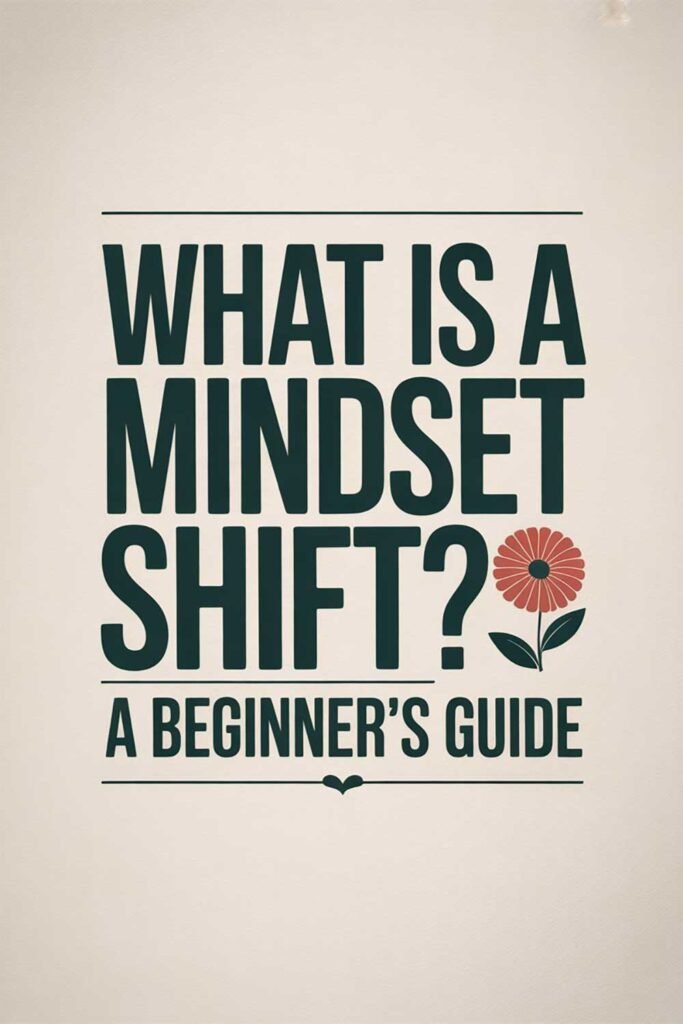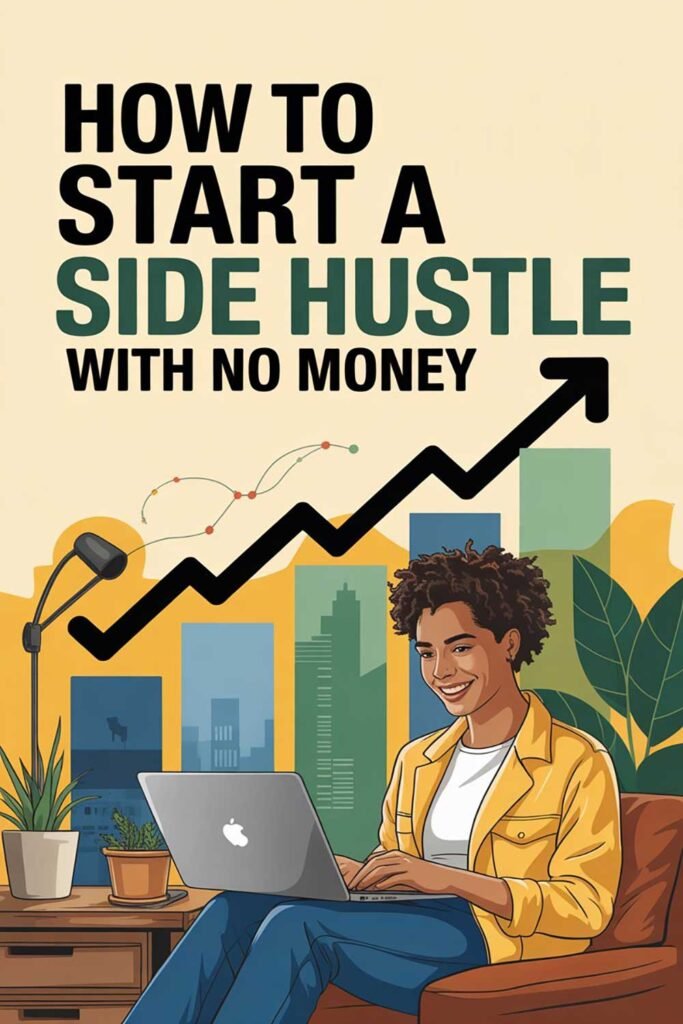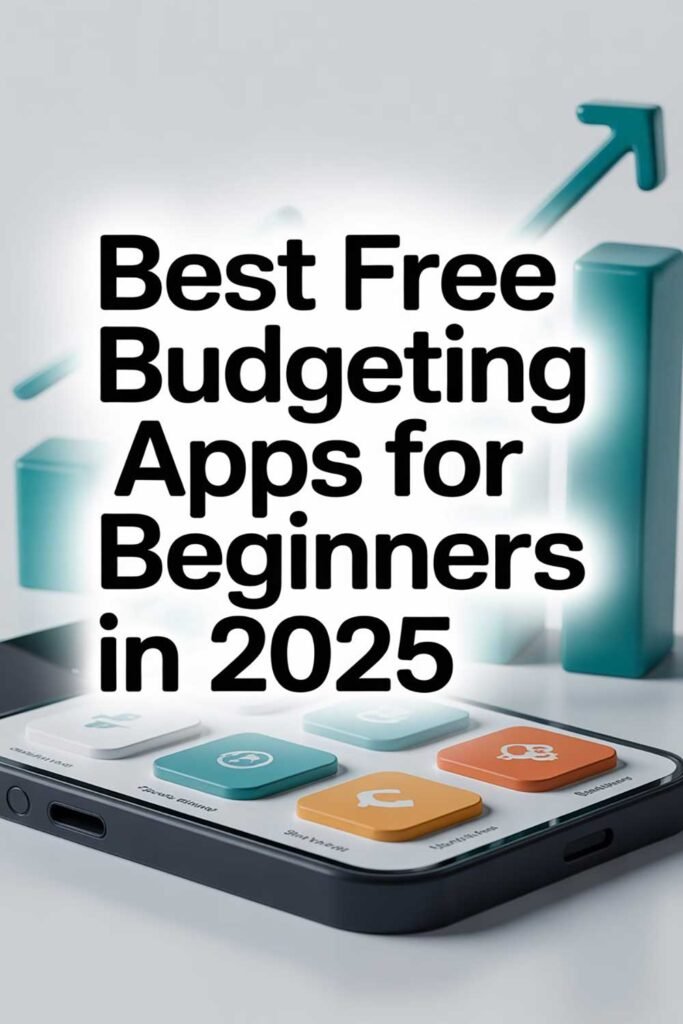
Breaking the Chain: How to Stop Thinking You’ll “Never Have Enough”
Do you ever find yourself caught in a relentless loop of wanting more? More money, more possessions, more success, more time, more recognition? Even when you achieve a goal, does the satisfaction quickly fade, replaced by a new desire, a new benchmark, a new anxiety that you’re still falling short? This gnawing feeling that you’ll “never have enough” isn’t just a fleeting thought; it’s a deep-seated scarcity mindset, a pervasive sense of lack that can silently sabotage your peace, joy, and ultimately, your well-being.

In our consumer-driven, comparison-heavy world, this mindset is easily cultivated. Social media constantly parades curated highlight reels, advertising tells us we’re incomplete without the latest gadget, and societal pressures push us towards an ever-climbing ladder of achievement. We internalize the belief that happiness lies just beyond the next promotion, the next purchase, or the next milestone. But this elusive finish line keeps moving, leaving us perpetually chasing, perpetually anxious, and perpetually feeling unfulfilled.
This isn’t about ignoring ambition or embracing mediocrity. This is about transforming your relationship with what you have, cultivating a profound sense of contentment, and understanding that true abundance isn’t measured by accumulation, but by appreciation. This is your definitive, deep-dive guide into how to stop thinking you’ll “never have enough”. We’re talking powerful mindset shifts, actionable daily practices, real-life transformations, and the kind of inspiring insights that will free you from the endless pursuit and help you discover the rich, full life you already possess.
The Invisible Cage: Why the “Never Enough” Mindset Persists (and Its Cost)
Before we outline the path to liberation, let’s dissect the roots and consequences of this insidious scarcity mindset.
Imagine trying to fill a bucket with water, but it has a slow, invisible leak. No matter how much water you pour in, it never feels full. That’s the “never enough” mindset. It’s a perception, not necessarily a reality. Even if your basic needs are met, even if you are objectively well-off, this internal leak can make you feel poor, deprived, or inadequate.
This mindset persists due to several powerful factors:
- Societal Conditioning: From childhood, we’re taught to strive, compete, and acquire. Marketing fuels this, creating desires for things we didn’t know we needed.
- Social Comparison: With the rise of social media, we are constantly bombarded with others’ perceived successes, leading to a constant “keeping up with the Joneses” on steroids.
- Fear of Missing Out (FOMO): The anxiety that if we don’t act now or acquire this, we’ll lose an opportunity or be left behind.
- Unresolved Inner Wounds: Sometimes, the need for “more” stems from deeper insecurities, a search for validation, or an attempt to fill an emotional void.
- Hedonic Adaptation: We quickly adapt to new levels of wealth or possessions. What once brought joy becomes the new normal, and we then seek the next “hit” of satisfaction.
The Cost of This Mindset:
- Chronic Anxiety & Stress: The endless chase leads to constant worry about what you don’t have or might lose.
- Unhappiness: True contentment becomes elusive.
- Overspending & Debt: Compulsive buying to fill the void, often leading to financial distress.
- If you’re grappling with this, our guide on 15 Things to Stop Buying to Save Money Instantly offers practical steps to curb impulse spending.
- Relationship Strain: Prioritizing accumulation over connection.
- Burnout: The relentless pursuit of external markers of success leads to exhaustion.
It’s time to dismantle this cage, brick by intentional brick.
The Pillars of Abundance: Shifting Your Mindset from Scarcity to Sufficiency
Here’s how to rewire your brain for contentment, appreciation, and the profound realization that you already have “enough.”
Pillar 1: Practice Radical Gratitude — The Foundation of Enough
Gratitude isn’t just saying “thank you.” It’s an active, daily practice of acknowledging and appreciating the good in your life, no matter how small. It’s the ultimate antidote to scarcity.
- The Shift: Instead of focusing on what’s missing, actively seek and appreciate what’s present.
- The Practice:
- Daily Gratitude Journal: Spend 5-10 minutes each morning or evening writing down at least 3-5 specific things you are genuinely grateful for. Be detailed. (“Grateful for my warm coffee,” not just “coffee.”)
- Gratitude Walk: As you go about your day, consciously notice things to be grateful for (the sun, a friendly face, green trees, running water).
- Verbalize Gratitude: Express thanks to others often. This amplifies the feeling.
- Focus on the Mundane: Appreciate basic comforts – a roof over your head, food in the fridge, clean water. These are luxuries for billions.
- Why this matters: Gratitude retrains your brain to look for positivity and abundance. It shifts your focus from perceived lack to undeniable plenty, directly challenging the “never enough” narrative.
- Real-Life Example: Sarah’s Daily Thank-You Sarah, a young professional living in a small apartment, used to constantly compare herself to friends buying homes. She started a daily gratitude practice. “Every morning, I’d write down three things,” she shared. “At first, it felt forced, but soon I genuinely started noticing. The taste of my homemade breakfast, the comfort of my bed, the fact that I had a job I didn’t hate. It didn’t magically make a down payment appear, but it made me feel incredibly rich in what truly mattered. The urgency to ‘keep up’ just melted away.”
Pillar 2: Redefine “Enough” — Beyond the Material Threshold
Societal definitions of “enough” are often based on arbitrary material benchmarks. To truly escape the scarcity trap, you must define “enough” for yourself, based on your values and needs, not external metrics.
- The Shift: Instead of chasing societal benchmarks, identify your true sufficiency point.
- The Practice:
- Values Clarification: What truly matters to you? Security, freedom, creativity, connection, impact? How does money serve these values, and at what point does “more” cease to enhance them?
- “Enough” Exercise: Imagine your ideal life without adding endless wealth. What does your “enough” house look like? How much income provides you comfort and the ability to pursue your passions? It’s often less than you think.
- Contentment Threshold: Recognize when you have enough to meet your needs and pursue your chosen desires. Practice being content in that space.
- Why this matters: By defining your own “enough,” you create a finish line that you can actually reach, breaking free from the endless, unfulfilling chase. It anchors your happiness internally.
Pillar 3: Cultivate Conscious Consumption — Spending with Purpose
The “never enough” mindset often manifests as compulsive or unconscious spending, trying to fill an internal void with external things. Conscious consumption is about aligning your spending with your values, making every purchase intentional.
- The Shift: Instead of buying to fill a void or keep up, buy to support your values and needs.
- The Practice:
- Needs vs. Wants: Before any purchase, ask yourself: Is this a true need or a want? If it’s a want, does it align with my values, or is it an impulse driven by external pressure?
- Value-Based Spending: If travel is a core value, you might choose to spend more there and less on dining out. If financial freedom is key, every dollar you save or invest aligns with that.
- The 24-Hour Rule: For non-essential purchases, wait 24 hours. Often, the urge passes.
- Budgeting as Empowerment: Use a budgeting plan to intentionally allocate your money to what truly matters to you, ensuring you have enough for your priorities.
- If you’re new to this, start with our Step-by-Step Budgeting Plan for Absolute Beginners on A Self Help Hub.
- Why this matters: Conscious consumption redirects your financial energy from chasing external validation to building internal security and pursuing genuinely fulfilling experiences, breaking the cycle of accumulation without satisfaction.
Pillar 4: Detach from Comparison — Your Path is Unique
Comparison is the thief of joy, especially in the digital age. Constantly comparing your behind-the-scenes reality to others’ highlight reels is a sure path to feeling like you’ll never measure up or have enough.
- The Shift: Instead of looking outwards for validation, focus inwards on your unique journey and progress.
- The Practice:
- Social Media Detox/Curate: Unfollow accounts that trigger feelings of inadequacy. Limit your time on platforms that promote comparison.
- Focus on Your Own Growth: Celebrate your personal milestones, no matter how small. Compare yourself only to who you were yesterday.
- Embrace Your Story: Recognize that everyone has struggles, even those who appear to “have it all.” Your journey is valid and unique.
- Cultivate Real Connections: Invest in deep, meaningful relationships that offer genuine support and understanding, rather than superficial displays.
- Why this matters: When you free yourself from the tyranny of comparison, you liberate immense mental and emotional energy, allowing you to focus on your own abundance and progress, rather than perceived lack relative to others.
Pillar 5: Embrace Growth & Contribution — Shift from Taking to Giving/Creating
The scarcity mindset often focuses on what you can get. Shifting to a mindset of growth and contribution – what you can learn, create, and give – opens up a whole new dimension of abundance.
- The Shift: Instead of feeling the need to acquire, feel the joy of expanding yourself and positively impacting others.
- The Practice:
- Continuous Learning: Dedicate time daily to learning new skills, reading, or expanding your knowledge. This fuels personal growth and a sense of internal richness.
- Many successful people prioritize this; explore their habits in Morning Routines of Millionaires — What They Do Differently on A Self Help Hub.
- Purpose-Driven Action: Connect your daily efforts to a larger purpose or contribution, whether in your work, community, or personal life.
- Acts of Service/Giving: Whether it’s volunteering your time, sharing your knowledge, or donating to a cause you care about, giving cultivates a sense of abundance and connection.
- Creative Expression: Engage in activities that allow you to create, whether it’s art, writing, music, or problem-solving. This taps into an infinite source of fulfillment.
- Continuous Learning: Dedicate time daily to learning new skills, reading, or expanding your knowledge. This fuels personal growth and a sense of internal richness.
- Why this matters: This shift moves you from a consumption-oriented existence to a contribution-oriented one. It replaces the endless desire for “more” with the profound satisfaction of growth, purpose, and impact, revealing the limitless abundance within.
Real-Life Transformations: Finding “Enough” in a World of More
These stories are powerful testaments to the freedom found by those who shifted their mindset from scarcity to sufficiency.
- Liam’s Lifestyle Reset: Liam, a high-earning consultant, constantly felt stressed and empty despite his income. He realized he was caught in the “more” trap. He started practicing radical gratitude daily and intentionally redefined “enough” for his family. “I stopped trying to buy the biggest house or the newest car,” Liam explained. “Instead, I focused on spending quality time with my kids and pursuing hobbies. My stress levels dropped dramatically, and paradoxically, I felt wealthier and more fulfilled than when I was just chasing the next big thing. I finally felt like I had enough, and that feeling was worth more than any bonus.”
- Chloe’s Creative Liberation: Chloe, a talented artist, struggled with imposter syndrome and the belief she wasn’t “successful enough” compared to other artists online. She began a social media detox and started focusing purely on her creative process, practicing daily gratitude for her artistic abilities and the simple act of creation. “Unfollowing all those ‘perfect’ artist accounts was the best thing I ever did,” Chloe said. “It freed up so much mental space. I stopped comparing my journey to theirs and just focused on my own joy of painting. My creativity soared, and the feeling of ‘never enough’ about my art simply disappeared.”
- The Ramirez Family’s Purposeful Living: The Ramirez family had always been focused on saving every penny, often living in a state of financial anxiety, fearing they wouldn’t have enough for retirement or emergencies. They were disciplined with their budget (which they refined using a step-by-step plan), but the “never enough” fear persisted. They began incorporating daily gratitude and connecting their savings goals to a deeper purpose: supporting their community. “We started volunteering at a local food bank, even just a few hours a month,” Mr. Ramirez shared. “Seeing true scarcity helped us realize how much we actually had. Our fear of ‘not enough’ transformed into appreciation for our resources and the desire to use them for good. We still save diligently, but now it comes from a place of abundance, not anxiety.”
These stories underscore a vital truth: “enough” isn’t a destination determined by a number or a possession. It’s a mindset, cultivated through intentional practice, that transforms your perception of your own life, revealing the vast abundance that’s been there all along.
Picture This…
Imagine waking up with a deep breath, feeling a profound sense of contentment for all that you already possess. The relentless chase has quieted, replaced by an inner calm. When a new desire arises, you can examine it without urgency, knowing you have the power to choose what truly serves your values. You compare yourself less to others and celebrate your unique path more. Your mind is free from the constant hum of worry, open instead to the possibilities of growth, creation, and genuine connection. This isn’t just a fantasy; it’s the peaceful, abundant reality waiting for you when you break free from the limiting belief that you’ll “never have enough.”
20 Quotes to Guide You to “Enough”
- “Gratitude turns what we have into enough, and more.” – Melody Beattie
- “Comparison is the thief of joy.” – Theodore Roosevelt
- “The richest person is not the one who has the most, but the one who needs the least.” – Unknown
- “Enough is a feast.” – Buddhist Proverb
- “It is not joy that makes us grateful; it is gratitude that makes us joyful.” – David Steindl-Rast
- “The less you want, the richer you are.” – Unknown
- “True abundance is not about collecting things, but about collecting experiences.” – Unknown
- “Poverty is not a lack of money, but a lack of spirit.” – Henry David Thoreau
- “The greatest wealth is to live content with little.” – Plato
- “Be content with what you have; rejoice in the way things are. When you realize there is nothing lacking, the whole world belongs to you.” – Lao Tzu
- “Abundance is not something we acquire. It is something we tune into.” – Wayne Dyer
- “Happiness is not having what you want, but wanting what you have.” – Hyman Judah Schachtel
- “The only thing that will make you happy is being happy with who you are, and not who people think you are.” – Goldie Hawn
- “Simplicity is the ultimate sophistication.” – Leonardo da Vinci
- “When we are no longer able to change a situation, we are challenged to change ourselves.” – Viktor Frankl
- “What you seek is seeking you.” – Rumi
- “The best things in life aren’t things.” – Art Buchwald
- “Don’t measure your wealth by the money you have in the bank, but by what you have in your heart.” – Unknown
- “The biggest adventure you can take is to live the life of your dreams.” – Oprah Winfrey (often begins with contentment)
- “If you fail to define enough, everything will be measured in comparison to other people.” – Dave Ramsey
Disclaimer
This article is intended for informational purposes only and is based on general psychological principles, philosophical insights, and common approaches to personal growth and financial well-being. Individual experiences with feelings of scarcity and abundance can vary greatly. While these strategies can be highly effective, overcoming deeply ingrained mindsets may require consistent effort and, in some cases, professional support from a therapist or coach. This content should not be considered a substitute for professional mental health, medical, or financial advice.
Share This Article!
Are you ready to break free from the “never enough” mindset? Share this transformative guide with a friend, family member, or on your social media to help others discover true abundance!

